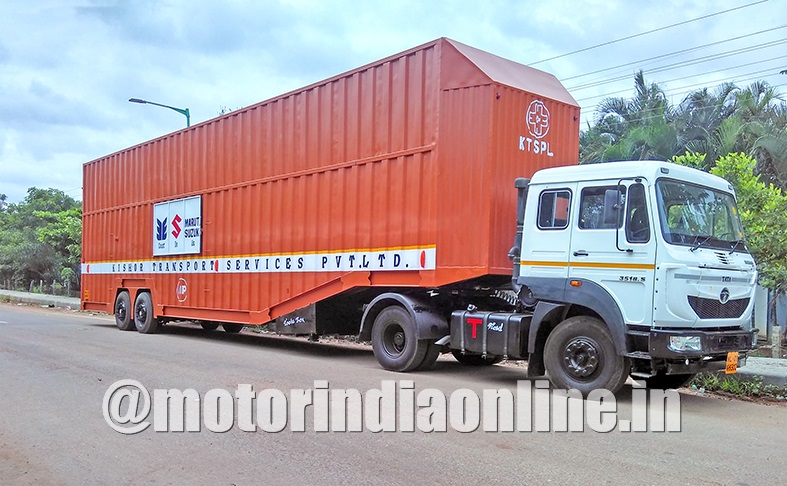Automotive Logistics companies are under pressure from their customers to change their traditional style of functioning and adopt modern systems and technologies to help speedy delivery and better performance, says Mr. Kamal Kishore Gandhi, MD, Kishor Transport Services Pvt. Ltd. (KTSPL).
Part of Mumbai-based Bafna Group of companies, Kishor Transport Services is widely recognised for its complete logistic solutions to the automobile industry since 1994. The company is into different modes of transportation including truck-based haulage, railways, and road driven (self-driven by vehicle jockey). In addition, it is also operating and maintaining stock yard at different locations for various automakers in the country. On an average, KTSPL handles about one lakh vehicle per year.
Mr. Kamal Kishore Gandhi shares his views on the segment and how his company is well poised for strong future growth.
Excerpts:
Specialized solutions
We take honor in being associated with all major auto makers in India including Tata Motors (from all of its facilities), Maruti Suzuki (from all MSIL plant and stockyards), Fiat, Hyundai, Toyota, Renault-Nissan, Mahindra, General Motors, Bajaj Auto, and TAFE to name a few. We provide them our multiple and specialized services in logistics and stockyard management. For instance, we presently handle Maruti Transit Vehicle Park located at Nagpur, while a dedicated joint venture with Toyota Transportation Co. Ltd. and Toyota Tsusho Corporation of Japan for the transportation of Toyota cars from their Bengaluru facility to different parts of the country. KTSPL is also a leading, well-experienced player in using railway wagons for automobile transportation.
Robust fleet
The car carrier fleet of KTSPL consists of more than 600 trucks, trailers and rigid-axle container trucks included. Of which 490 are car carriers and some 110 trailers are for hauling chassis of commercial vehicles. We source tractors from Tata Motors one-hundred per cent, while our trailers are fabricated by equipment makers like Tippers and Trailer India, Lohr, Trinity Trailer, Balaji, and Seamless Autotech. About 85 per cent of our fleet is less than three years old, while our entire fleet is compliant to revised CMVR standards and feature latest safety equipment like GPS, camera, speed governors, and so on.
Trends and challenges
Considering the increase in domestic car sales (in terms of unit numbers) and advent of new brands in the market, the demand for car carriers exist always. However, challenges are aplenty and the market scenario remains unsteady lately. For instance, fleet rotation is a major challenge. Long waits at OEMs for loads, seasonal problems at various locations, and uneven demand during festive season results in enormous idle time and waste of resources for operators.
Further, increasing fuel prices, tolls and on-road expense, RTO/Police fine, union charges, insurance costs, and fleet maintenance are pushing up our operating costs. At times, the costs are sudden, making the planning processes difficult.
On the other hand, several new logistics service providers are entering the field, resulting in over-capacity and under-utilization of fleets in the industry. This space is still not a well organized, where one can find unethical competition among services providers – a major problem for sustainable growth. OEMs are also searching for cheaper haulage options, including railways and water ways for moving cars in bulk, which is affecting truck-based car carrier business.
Standardisation and safety
The revised CMVR norms on car carrier dimensions has incurred us extra costs and reduced the carrying capacity of trailers. In spite of being legally-compliant, several State Governments are still imposing cases and penalties on car carriers regularly. Although, GST has made the inter-State movement hassle-free. In terms of road safety, accident cases are increasing everyday, which results in loss of life and materials. Several cases of theft are also being reported, highlighting the need for government action in this regard.
Performance and future growth
We have done comparatively good business in FY 2018-19, but not as expected in last quarter due to market situation. We are far ahead in performance parameters like damage free status, on time delivery, driver welfare, and so on, along with the induction of 126 new vehicles to our fleet, much to appreciation of our clients.
Certainly, car carriers have to play a significant role in future, but we have to focus on multi-modal transportation in future. Road, rail and water connectivity together will improve the transportation needs of this industry.
